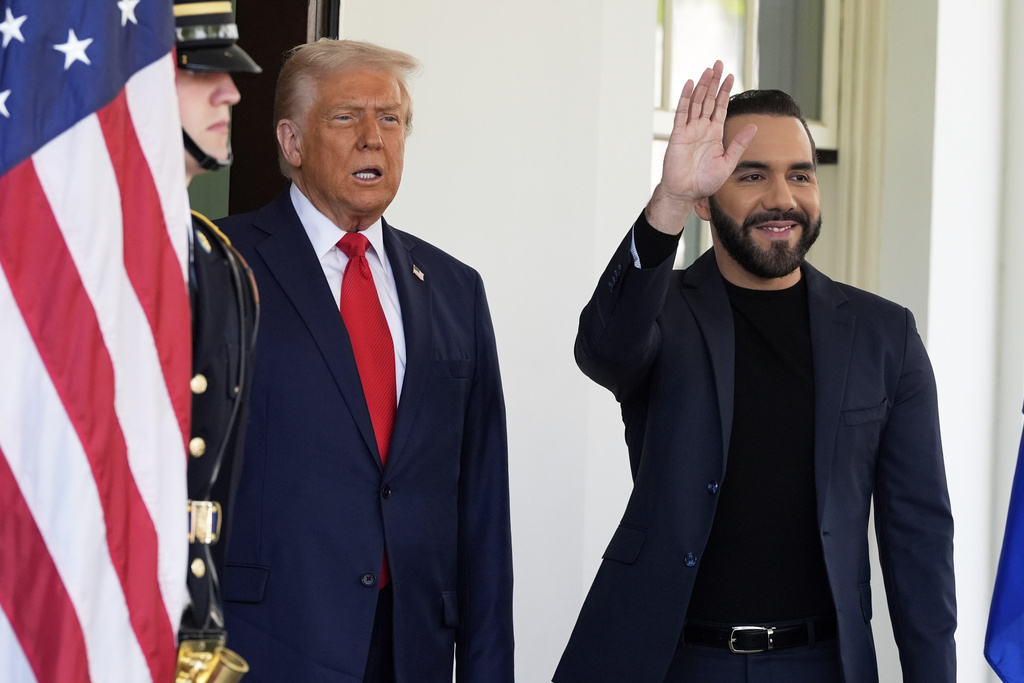Colin Carroll, the chief of staff to Deputy Secretary of Defense Steve Feinberg, was escorted from the Pentagon. His exit follows administrative leave imposed earlier on Dan Caldwell, a senior adviser to Secretary of Defense Pete Hegseth, and on Darin Selnick, deputy chief of staff for the Department of Defense, Fox News reported.
The moves are part of an ongoing investigation into unauthorized disclosures of classified information.
The dismissals, whether temporary or permanent, appear unrelated to the Signal group chat of Trump advisors discussing sensitive military information regarding a planning strike against Houthi rebels in Yemen, Scott Uehlinger said on American Family Radio Thursday.
Jeffrey Goldberg, editor of The Atlantic, was inadvertently included in that group text and published excerpts of the conversation.
Instead, the dwindling number of senior officials in the Pentagon could be because the administration valued experience over proven loyalty when filling out staff, Uehlinger told show host Jenna Ellis.
Whether Feinberg, Caldwell and Selnick were holdovers from the Biden administration has yet to be confirmed, Uehlinger said. But he speculates they were.
“I actually have a tendency to think that they may be holdovers from the Biden administration,” Uehlinger said.
The very senior nature of the positions leads to that possibility, according to Uehlinger.
“When you get to these senior support positions for politically appointed individuals, these people are kind of creatures of the swamp. They have functioned in the swamp in Washington for a long time. They know the ins and outs of being a chief of staff, of supporting someone in a political position.”
That valuable know-how was perhaps coveted by the Trump administration, Uehlinger said, if it was tending to pick people who were already “Washington insiders.” Insiders, he explained, don’t always leave their politics at the door.

So, when an administration from the other side of the aisle takes over and stays with the insiders “you’re playing with fire, as we’re starting to see. Often, they have been playing the political DC insider game for so long that they come into the job in the Trump administration, in this case the Pentagon, with the same mindset,” Uehlinger added.
A recurring issue for Trump
Trump, an outsider, had this problem during his first administration, Uehlinger said. One example was Richard Cordray, the director of the Consumer Financial Protection Bureau, who left office in late November 2017.
A Barack Obama appointee, Cordray was generally opposed to the Trump administration’s regulatory approach to the CFPB. Upon announcing his resignation, Cordray designated his choice as successor, but the administration ignored that and went a different direction.
The very hiring of Hegseth, Ellis speculated, was because he was himself a political outsider, not an insider, and would take the job aligned with Trump’s agenda.
That outsider status means Hegseth might pick a couple of key advisers, but many other positions would be filled on the recommendation of someone who was already working in the Pentagon, according to Uehlinger.
The Defense Department has said it might consider the use of polygraph tests to determine the sources of leaked information.
"The use of polygraphs in the execution of this investigation will be in accordance with applicable law and policy," DOD Chief of Staff Joe Kasper wrote in a memo. "This investigation will commence immediately and culminate in a report to the Secretary of Defense."
The investigation could lead to referrals for criminal prosecution, Kasper wrote.
It’s possible such senior employees had been subjected to polygraph exams earlier in their careers – but a polygraph doesn’t catch politics, Uehlinger noted.
“They may have already passed a national security polygraph, which is basically [asking] Are you a spy for a foreign country? But because of their political inclinations or who they voted for or some of their opinions, which basically the polygraph might not cover, they may have decided for the first time, ‘Okay, I'm going to leak this stuff because I just don't like what's going on.’”
A rush to get a new admin going?
If a potential vetting problem missed warning signs from senior members for their valued experience, it may have missed lower-level staff in a rush to get a new administration off the ground.
“They may not be giving this widespread screening to these subordinates, these staff members, to politically appointed positions because they simply need to fill them because there are bad guys out there, and the Pentagon needs to be able to react to that. So, like they need they need these people now. They can't wait,” Uehlinger speculated.
The good news, he continued, is that the administration is working to correct the problem.
“Maybe they’re going to learn from this by polygraphing and perhaps some punishment for these individuals. Americans are waiting for a lot of people to be going to jail. Hopefully we’ll resolve this problem,” Uehlinger concluded.







